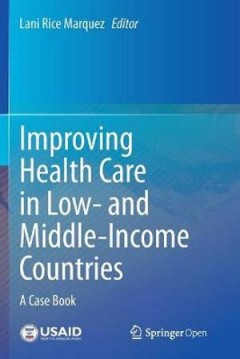Filter by

Career and Career Guidance in the Nordic Countries
Career brings together individuals’ paths through life, learning and work. It describes how people interface with social institutions including the education system, employers, civil society and the state. Because our careers are socially and culturally embedded it matters where they are enacted. Career and Career Guidance in the Nordic Countries explores what kind of context the Nordic regio…
- Edition
- Volume: 9
- ISBN/ISSN
- 978-90-04-42809-6
- Collation
- -
- Series Title
- -
- Call Number
- -

Continuity and Discontinuity in Learning Careers
Continuity and Discontinuity in Learning Careers: Potentials for a Learning Space in a Changing World focuses on the new challenges and threats posed to adult education as a potential way out of the economic crisis and social change. It explores the role of adult education in relation to the continuity and discontinuity of the learning careers and identities of adults in a range of adult educat…
- Edition
- -
- ISBN/ISSN
- 978-90-04-37545-1
- Collation
- -
- Series Title
- Research on the Education and Learning of Adults, Volume: 6
- Call Number
- -

Improving Health Care in Low- and Middle-Income Countries
This open access book is a collection of 12 case studies capturing decades of experience improving health care and outcomes in low- and middle-income countries. Each case study is written by healthcare managers and providers who have implemented health improvement projects using quality improvement methodology, with analysis from global health experts on the practical application of improvement…
- Edition
- 1
- ISBN/ISSN
- 9783030431129
- Collation
- XVI, 245 hlm; ill., lamp.,
- Series Title
- -
- Call Number
- -

Longer-Term Psychiatric Inpatient Care for Adolescents
he purpose of this book is to describe the multidisciplinary model of care delivered by a long stay high severity psychiatric unit for adolescents. We acknowledge that many jurisdictions do not have the resources to establish a unit that fulfils such a specialized role within the system of mental health care. Nevertheless, we hope that the learnings derived from the unit may generaliz…
- Edition
- -
- ISBN/ISSN
- 9789811919503
- Collation
- XIX, 188
- Series Title
- -
- Call Number
- -

Advances in Pharma Business Management and Research
This open access book presents a unique collection of practical examples from the field of pharma business management and research. It covers a wide range of topics such as: 'Brexit and its Impact on pharmaceutical Law - Implications for Global Pharma Companies', 'Implementation of Measures and Sustainable Actions to Improve Employee's Engagement', 'Global Medical Clinical and Regulatory Affair…
- Edition
- 1
- ISBN/ISSN
- 9783030359188
- Collation
- X, 85 hlm; ill., lamp.,
- Series Title
- -
- Call Number
- -

Creating the University of the Future : A Global View on Future Skills and Fu…
This open access publication presents a global panorama of institutional strategies, academic programs, scholarly insights as well as teaching and learning practices taking stock of the Future Skills Turn taking place in higher education. Future Skills have evolved to be one of the most important priorities for the development of higher education institutions globally. Students and graduates le…
- Edition
- 1
- ISBN/ISSN
- 9783658429485
- Collation
- XXXVIII, 611 hlm; ill., lamp.,
- Series Title
- -
- Call Number
- -

Vessel Health and Preservation: The Right Approach for Vascular Access
This Open access book offers updated and revised information on vessel health and preservation (VHP), a model concept first published in poster form in 2008 and in JVA in 2012, which has received a great deal of attention, especially in the US, UK and Australia. The book presents a model and a new way of thinking applied to vascular access and administration of intravenous treatment, and …
- Edition
- 1
- ISBN/ISSN
- 9783030031497
- Collation
- https://doi.org/10.1007/978-3-030-03149-7 hlm,: ill, lamp;
- Series Title
- -
- Call Number
- -

Aging Well : Solutions to the Most Pressing Global Challenges of Aging
This open access book outlines the challenges of supporting the health and wellbeing of older adults around the world and offers examples of solutions designed by stakeholders, healthcare providers, and public, private and nonprofit organizations in the United States. The solutions presented address challenges including: providing person-centered long-term care, making palliative care accessibl…
- Edition
- 1
- ISBN/ISSN
- 9789811321641
- Collation
- XVII, 218 hlm; ill., lamp.,
- Series Title
- -
- Call Number
- -

Transnational Entrepreneurship in South East Asia
Professor Yokoyama is the Dean of the Graduate School of Business Administration, Toyo Gakuen University, Tokyo, Japan, where she supervises research in the field of human resource management in Japanese companies by drawing comparisons between Japanese-style employment management and the merit-based systems. Her recent research is concerned with Japanese self-initiated expatriate entrepreneurs…
- Edition
- 1
- ISBN/ISSN
- 9789813292529
- Collation
- XXI, 220, hlm,: ill, lamp;
- Series Title
- -
- Call Number
- -

Vulnerability Revisited
Open access. This open-access book discusses vulnerability and the protection-inclusion dilemma of including those who suffer from serious poverty, severe stigma, and structural violence in research. Co-written with representatives from indigenous peoples in South Africa and sex workers in Nairobi, the authors come down firmly on the side of inclusion. In the spirit of leaving no one behind in …
- Edition
- 1
- ISBN/ISSN
- 978-3-031-57896-0
- Collation
- -
- Series Title
- SpringerBriefs in Research and Innovation Governance
- Call Number
- XIX, 145
 Computer Science, Information & General Works
Computer Science, Information & General Works  Philosophy & Psychology
Philosophy & Psychology  Religion
Religion  Social Sciences
Social Sciences  Language
Language  Pure Science
Pure Science  Applied Sciences
Applied Sciences  Art & Recreation
Art & Recreation  Literature
Literature  History & Geography
History & Geography